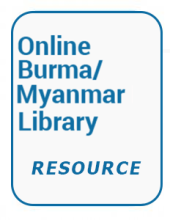Land Library
Bienvenue dans la bibliothèque du Land Portal. Explorez notre vaste collection de ressources en libre accès (plus de 74 000), comprenant des rapports, des articles scientifiques, des articles de recherche, des publications évaluées par des pairs, des documents juridiques, des vidéos et bien plus encore.
/ library resources
Showing items 19 through 27 of 1110.The following Interview was conducted by a community member trained by KHRG to monitor local human rights conditions.
Housing, land and property rights are fundamental human rights and a global advocacy priority for
the Norwegian Refugee Council. The restitution of housing, land and property rights after conflicts
... The restitution of housing, land and property rights after conflicts
and periods of non-democratic governance are fundamental aspects of transitional justice which are
essential for the achievement of durable solutions to forced displacement, and to broader concerns
This Interview with Saw A--- and Saw B--- describes events occurring in Hlaingbwe Township, Hpa-an District before September 2016, including forced labour, forced porters, arbitrary demands and fighting between armed groups.
This Interview with Saw A--- describes an arbitrary arrest that occurred in Htantabin Township, Toungoo District, in January 2016.
Conclusions: "Amnesty International’s latest research shows that hundreds of people close to the giant Letpadaung mine continue to face the risk of forced eviction from their farmland, and in the case of four villages, from their homes as well.
This case study presents a country-wide quantitative analysis of a Parliamentary Commission established in 2012 in Myanmar to examine ‘land grab’ cases considered and to propose solutions towards releasing the land to its original owners, in most cases smallholder farming families.
GRAIN is a small international non-profit organisation that works to support small farmers and social movements in their struggles for community-controlled and biodiversity-based food systems.
This study emerged out of an identified need to document social
processes leading to land insecurity, and those leading to investment
and sustainable use of lands by rural populations. Focusing on the
Delta and Dry Zone, the main paddy producing regions of Myanmar,

